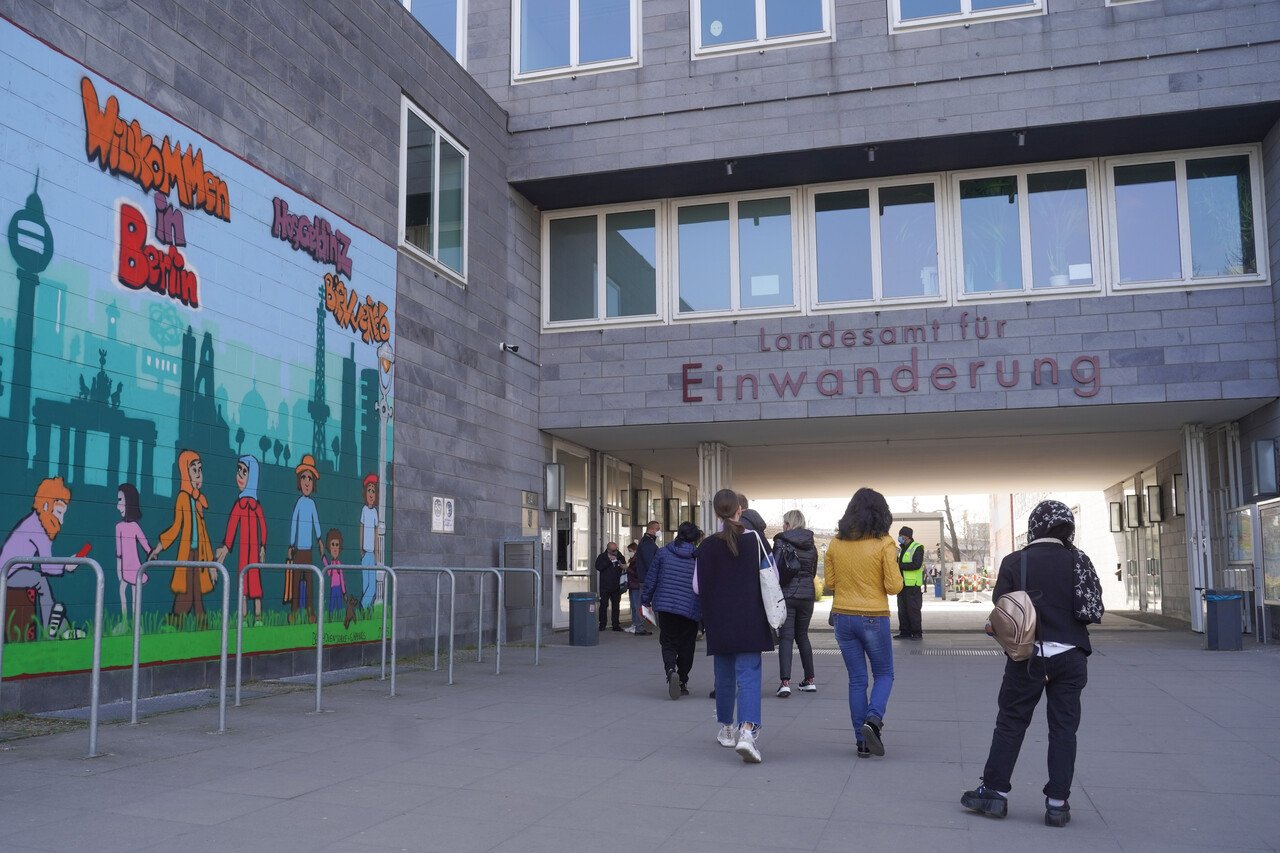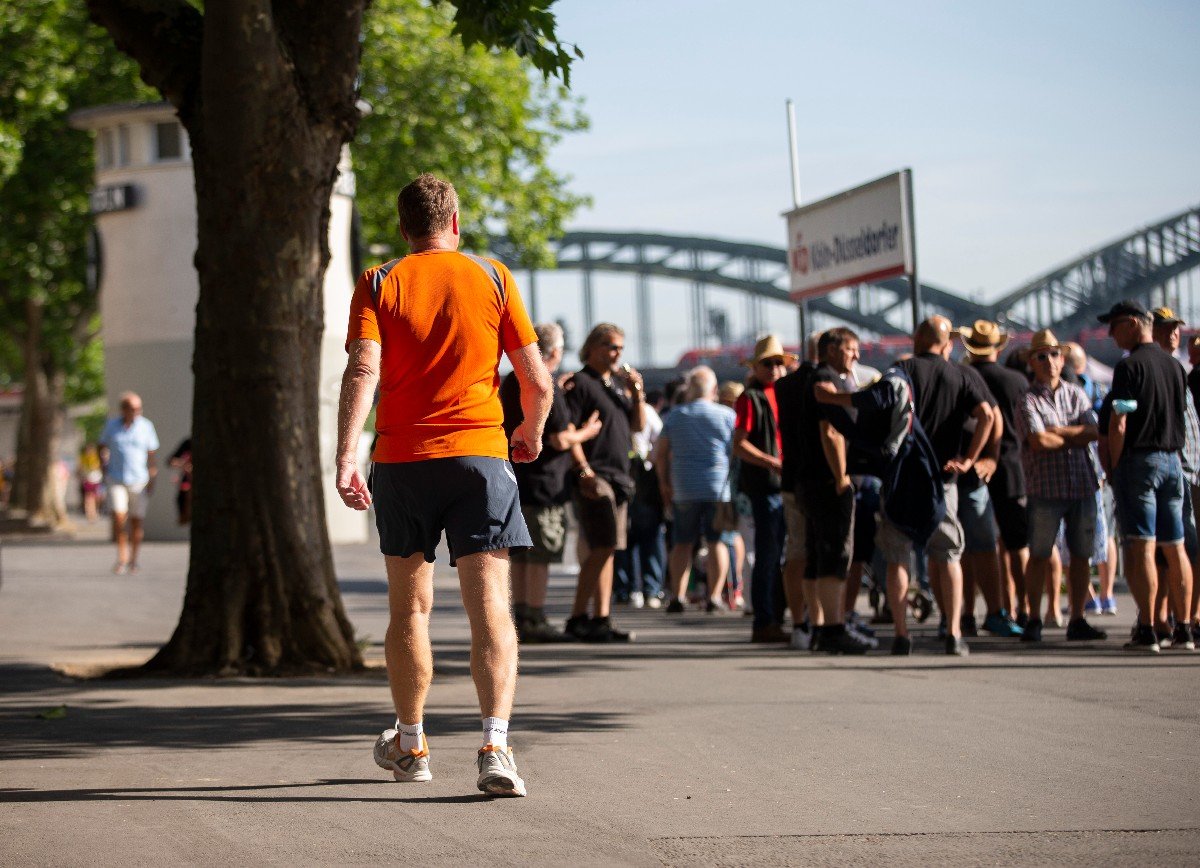What are citizenship offices around Germany doing to prepare for the new law?

Hundreds of thousands of residents could apply for German citizenship after the new dual nationality law comes into force. How are citizenship offices around the country preparing for the sudden rush after June 27th?
With Germany's overhaul of citizenship rights set to come into force at the end of June, there's plenty of excitement in foreign communities right now. But as always in Germany, bureaucracy is a big concern.
As The Local has reported, many citizenship offices in Germany are already struggling against a tidal wave of applications, with some reporting waiting times of several months just for an initial appointment.
When the new law comes in and residence requirements are cut to just five years, tens if not hundred of thousands of people will become eligible for German citizenship overnight.
At the same time, people who were put off applying due to Germany's draconian ban on dual nationality could decide to make the leap once they're able to keep their old passport.
READ ALSO: What do I need to apply for German citizenship under the new law?
All of this means that waiting times could explode at immigration offices around Germany, and foreigners could still be waiting months or even years to fulfil their dream of becoming German citizens.
We spoke to officials at immigration offices around the country to find out how - if at all - they've been preparing for the new law.
Berlin
In many ways, Berlin has been ahead of the game in trying to overhaul its processes and speed things up for applicants. Since the start of 2024, the previous citizenship offices in each of the city's boroughs were centralised at the Landesamt für Einwandering (LEA), with the aim of more than doubling the number of staff working on applications.
Though not all the positions have been filled, the LEA has put aside funding for 200 rather than 80 full-time staff members and wants to increase the number of applications being processed from 9,000 in 2023 to 20,000 in 2024.

People walk next to a mural at the State Office for Immigration (LEA) on Friedrich-Krause-Ufer in Berlin. Photo: picture alliance/dpa | Jörg Carstensen
Alongside the fresh influx of staff, Berlin has also switched to an entirely digital system, from an online 'quick check' screening tool to online applications.
Speaking to The Local, a spokesperson at the LEA explained that the new law would not just make citizenship easier to obtain by lowing residence requirements but would also make it more desirable by allowing multiple nationalities.
READ ALSO: Foreigners in Berlin furious over German citizenship delays
"The LEA is therefore preparing for a significant increase in the number of applications and is preparing for this in particular by revising the digital naturalisation application, the internal procedural information and customised communication, e.g. by expanding the FAQ on the topic," the spokesperson said.
Bremen
In Bremen, the Interior Ministry is expecting a spike in applications after the new law comes in. Though some parts of the process will get simpler - for example, because people won't have to relinquish their old passports - the authorities expect this to be offset by the huge increase in the number of applicants.
Though the immigration office has increased its staff over the past few years, authorities say they still don't have enough people to cope with the number of applications, which is why they're focusing on becoming more efficient.
"In order to strengthen the immigration office in the long term, we are constantly examining how processes can be optimised so that processing times can be reduced," a spokeswoman for Bremen's Interior Ministry told The Local.
"For example, the Interior Ministry is currently working on a project to develop concrete measures to improve the immigration office, such as reviewing the work processes in the naturalisation procedure. We are looking for ways to relieve employees of administrative tasks in order to make processes faster and more efficient.
"In addition, the immigration office is continuously involved with advancing digitalisation and is working on further developing these processes as well," she added.
Cologne
The problems at Cologne's immigration office have been widely reported in recent weeks, with the city even announcing in late May that it would stop accepting citizenship applications for the time being.
Apparently, this is to give the authorities time to handle the large backlog of applications and prepare for the some 10,000 new applications they expect after the new law comes in.

People on the Rhine promenade in Cologne. Foreign residents are unable to apply for citizenship in the city due to a backlog. Photo: picture alliance/dpa | Thomas Banneyer
Though there's no set end date to the hiatus, authorities have suggested that the immigration office may reopen sometime in September, though there are no more appointments for a screening call until next year.
On a more positive note, the immigration authority is taking steps to increase its staff members from 30 to 90 in the coming months - but they also except a tripling of applicants.
READ ALSO: Cologne stops accepting German citizenship applications due to 'enormous' backlog
Dortmund
In Dortmund, the demand for naturalisations has been rising continuously since 2021 - not solely because of the upcoming dual nationality law.
A spokesperson for the City of Dortmund said authorities had already been taking various organisational and technical measures to bolster the naturalisation authority, for example by almost doubling the number of staff between 2021 and 2024.
"Further organisational, technical and personnel measures are also planned for 2025," they said.
Essen
In the western German city of Essen, the authorities took a proactive approach and aimed to triple the number of staff in the naturalisation department long before the new law came in.
A spokesperson told The Local that a large number of these positions have been filled and that the authority is set to be fully staffed within the coming weeks.
"The increase in staffing levels that has been initiated, as well as an increase in staffing levels that has already taken place in 2022/23, the City of Essen has clearly responded to the stressful situation of the sharp rise in the number of applications in recent years - and the continuing rise," a spokesperson for the city explained.
"As employees first need to be trained, the naturalisation department has not yet reached its full capacity."
READ ALSO: When and how can I apply for German citizenship?
Frankfurt
In Hesse, councils or administrative committees in districts with 7,500 or more inhabitants are responsible for accepting naturalisation applications, which are then forwarded on to Darmstadt regional council when they are complete.

A group naturalisation ceremony takes place in St Paul's Chruch in Frankfurt am Main. Photo: picture alliance / Fabian Sommer/dpa | Fabian Sommer
A spokesperson at Frankfurt Standesamt, which handles citizenship matters, said that applications were currently taking around six months in the city and a further 18 in Darmstadt, bringing the total wait time up to two years. Applications are expected to double or triple when the new law comes in - but there's no additional staff available for the task.
Hamburg
In order to be able to deal with a big jump in applications after the new citizenship law comes into force, the city's citizenship authority has increased its staff and many of its procedures have been digitalised.
Since the end of 2023, foreigners can apply for citizenship online and also check whether they meet the requirements for naturalisation by using Hamburg's digital ‘quick check’ tool, saving the need for a phone or in-person appointment.
Leipzig
Since 2021, when many citizenship offices have observed a jump in applications, Leipzig has been taking steps to speed up its processes.
A separate naturalisation department was established in 2023 and the number of staff has tripled since then.
A spokesperson for the mayor's office said that the department had also been holding information events, improving the website and digitalising processes by creating an electronic file for applications, with an online application form set to be introduced soon.
"Further planning and implementation is currently underway, including a further increase in staff and the implementation of an online application process as part of the Online Access Act," the spokesperson said.
Munich
In Munich and Bavaria more widely, applicants can take advantage of an online screening tool and digital application, which means they don't need to wait too long for phone or in-person appointments. That said, the Bavarian capital currently has around 18,000 applications waiting to be processed and current wait times are 12-18 months. The office also expects a big influx after June 27th,.
Back in 2023, the city decided to hire 20 additional staff, many of whom are currently in the process of being onboarded.
Speaking to The Local, a spokesperson for the city administration said the naturalisation office's website had already been updated with information on the new law and that lawyers and NGOs had also been briefed on the changed.

Passers-by walk across Marienplatz square in Munich. Photo: picture alliance / Matthias Balk/dpa | Matthias Balk
"In future, the naturalisation certificates are to be handed out in a larger, more ceremonial setting so that more customers can be naturalised at the same time but in a dignified manner," the spokesperson said. "This will speed up the overall process."
At the same time, the authorities are working to simplify and digitalise as many processes as possible to make things as efficient as they can be. They also expect the allowance of dual nationality to get rid of some of their red tape.
Stuttgart
Based on federal government estimates, Stuttgart expects the number of applications to more than double to 8,000 per year after the new law comes in.
To handle this influx, 11 new positions were created at the naturalisation office at the start of 2024, all of which have now been filled.
The naturalisation authority has also been completely reorganised and the city plans to hold multiple information events in the coming months.
"At the end of 2024, the actual number of applications will be used to determine how many additional positions are required for processing," a spokesperson for the naturalisation authority told The Local.
READ ALSO: How German immigration office delays hurt lives of foreign workers
Düsseldorf
Authorities in the western city told us that there are currently just under 8,500 naturalisation applications currently being processed.
The city told The Local it has seen citizenship applications rise in the last years - from 3,813 in 2022 to 4,739 in 2023.
"Up to and including April 2024, 2,097 applications have already been received," a spokesperson told us. "It is therefore to be expected that the number this year will be much higher than in previous years."
The city said when the new law comes into force, workers will follow new guidelines. This will include prioritising applications that can be given the green light swiftly - for instance to naturalisations of the so-called guest-worker generation.
Authorities have created 4.5 new positions to deal with the influx.
Comments (4)
See Also
With Germany's overhaul of citizenship rights set to come into force at the end of June, there's plenty of excitement in foreign communities right now. But as always in Germany, bureaucracy is a big concern.
As The Local has reported, many citizenship offices in Germany are already struggling against a tidal wave of applications, with some reporting waiting times of several months just for an initial appointment.
When the new law comes in and residence requirements are cut to just five years, tens if not hundred of thousands of people will become eligible for German citizenship overnight.
At the same time, people who were put off applying due to Germany's draconian ban on dual nationality could decide to make the leap once they're able to keep their old passport.
READ ALSO: What do I need to apply for German citizenship under the new law?
All of this means that waiting times could explode at immigration offices around Germany, and foreigners could still be waiting months or even years to fulfil their dream of becoming German citizens.
We spoke to officials at immigration offices around the country to find out how - if at all - they've been preparing for the new law.
Berlin
In many ways, Berlin has been ahead of the game in trying to overhaul its processes and speed things up for applicants. Since the start of 2024, the previous citizenship offices in each of the city's boroughs were centralised at the Landesamt für Einwandering (LEA), with the aim of more than doubling the number of staff working on applications.
Though not all the positions have been filled, the LEA has put aside funding for 200 rather than 80 full-time staff members and wants to increase the number of applications being processed from 9,000 in 2023 to 20,000 in 2024.

Alongside the fresh influx of staff, Berlin has also switched to an entirely digital system, from an online 'quick check' screening tool to online applications.
Speaking to The Local, a spokesperson at the LEA explained that the new law would not just make citizenship easier to obtain by lowing residence requirements but would also make it more desirable by allowing multiple nationalities.
READ ALSO: Foreigners in Berlin furious over German citizenship delays
"The LEA is therefore preparing for a significant increase in the number of applications and is preparing for this in particular by revising the digital naturalisation application, the internal procedural information and customised communication, e.g. by expanding the FAQ on the topic," the spokesperson said.
Bremen
In Bremen, the Interior Ministry is expecting a spike in applications after the new law comes in. Though some parts of the process will get simpler - for example, because people won't have to relinquish their old passports - the authorities expect this to be offset by the huge increase in the number of applicants.
Though the immigration office has increased its staff over the past few years, authorities say they still don't have enough people to cope with the number of applications, which is why they're focusing on becoming more efficient.
"In order to strengthen the immigration office in the long term, we are constantly examining how processes can be optimised so that processing times can be reduced," a spokeswoman for Bremen's Interior Ministry told The Local.
"For example, the Interior Ministry is currently working on a project to develop concrete measures to improve the immigration office, such as reviewing the work processes in the naturalisation procedure. We are looking for ways to relieve employees of administrative tasks in order to make processes faster and more efficient.
"In addition, the immigration office is continuously involved with advancing digitalisation and is working on further developing these processes as well," she added.
Cologne
The problems at Cologne's immigration office have been widely reported in recent weeks, with the city even announcing in late May that it would stop accepting citizenship applications for the time being.
Apparently, this is to give the authorities time to handle the large backlog of applications and prepare for the some 10,000 new applications they expect after the new law comes in.

Though there's no set end date to the hiatus, authorities have suggested that the immigration office may reopen sometime in September, though there are no more appointments for a screening call until next year.
On a more positive note, the immigration authority is taking steps to increase its staff members from 30 to 90 in the coming months - but they also except a tripling of applicants.
READ ALSO: Cologne stops accepting German citizenship applications due to 'enormous' backlog
Dortmund
In Dortmund, the demand for naturalisations has been rising continuously since 2021 - not solely because of the upcoming dual nationality law.
A spokesperson for the City of Dortmund said authorities had already been taking various organisational and technical measures to bolster the naturalisation authority, for example by almost doubling the number of staff between 2021 and 2024.
"Further organisational, technical and personnel measures are also planned for 2025," they said.
Essen
In the western German city of Essen, the authorities took a proactive approach and aimed to triple the number of staff in the naturalisation department long before the new law came in.
A spokesperson told The Local that a large number of these positions have been filled and that the authority is set to be fully staffed within the coming weeks.
"The increase in staffing levels that has been initiated, as well as an increase in staffing levels that has already taken place in 2022/23, the City of Essen has clearly responded to the stressful situation of the sharp rise in the number of applications in recent years - and the continuing rise," a spokesperson for the city explained.
"As employees first need to be trained, the naturalisation department has not yet reached its full capacity."
READ ALSO: When and how can I apply for German citizenship?
Frankfurt
In Hesse, councils or administrative committees in districts with 7,500 or more inhabitants are responsible for accepting naturalisation applications, which are then forwarded on to Darmstadt regional council when they are complete.

A spokesperson at Frankfurt Standesamt, which handles citizenship matters, said that applications were currently taking around six months in the city and a further 18 in Darmstadt, bringing the total wait time up to two years. Applications are expected to double or triple when the new law comes in - but there's no additional staff available for the task.
Hamburg
In order to be able to deal with a big jump in applications after the new citizenship law comes into force, the city's citizenship authority has increased its staff and many of its procedures have been digitalised.
Since the end of 2023, foreigners can apply for citizenship online and also check whether they meet the requirements for naturalisation by using Hamburg's digital ‘quick check’ tool, saving the need for a phone or in-person appointment.
Leipzig
Since 2021, when many citizenship offices have observed a jump in applications, Leipzig has been taking steps to speed up its processes.
A separate naturalisation department was established in 2023 and the number of staff has tripled since then.
A spokesperson for the mayor's office said that the department had also been holding information events, improving the website and digitalising processes by creating an electronic file for applications, with an online application form set to be introduced soon.
"Further planning and implementation is currently underway, including a further increase in staff and the implementation of an online application process as part of the Online Access Act," the spokesperson said.
Munich
In Munich and Bavaria more widely, applicants can take advantage of an online screening tool and digital application, which means they don't need to wait too long for phone or in-person appointments. That said, the Bavarian capital currently has around 18,000 applications waiting to be processed and current wait times are 12-18 months. The office also expects a big influx after June 27th,.
Back in 2023, the city decided to hire 20 additional staff, many of whom are currently in the process of being onboarded.
Speaking to The Local, a spokesperson for the city administration said the naturalisation office's website had already been updated with information on the new law and that lawyers and NGOs had also been briefed on the changed.

"In future, the naturalisation certificates are to be handed out in a larger, more ceremonial setting so that more customers can be naturalised at the same time but in a dignified manner," the spokesperson said. "This will speed up the overall process."
At the same time, the authorities are working to simplify and digitalise as many processes as possible to make things as efficient as they can be. They also expect the allowance of dual nationality to get rid of some of their red tape.
Stuttgart
Based on federal government estimates, Stuttgart expects the number of applications to more than double to 8,000 per year after the new law comes in.
To handle this influx, 11 new positions were created at the naturalisation office at the start of 2024, all of which have now been filled.
The naturalisation authority has also been completely reorganised and the city plans to hold multiple information events in the coming months.
"At the end of 2024, the actual number of applications will be used to determine how many additional positions are required for processing," a spokesperson for the naturalisation authority told The Local.
READ ALSO: How German immigration office delays hurt lives of foreign workers
Düsseldorf
Authorities in the western city told us that there are currently just under 8,500 naturalisation applications currently being processed.
The city told The Local it has seen citizenship applications rise in the last years - from 3,813 in 2022 to 4,739 in 2023.
"Up to and including April 2024, 2,097 applications have already been received," a spokesperson told us. "It is therefore to be expected that the number this year will be much higher than in previous years."
The city said when the new law comes into force, workers will follow new guidelines. This will include prioritising applications that can be given the green light swiftly - for instance to naturalisations of the so-called guest-worker generation.
Authorities have created 4.5 new positions to deal with the influx.
Join the conversation in our comments section below. Share your own views and experience and if you have a question or suggestion for our journalists then email us at [email protected].
Please keep comments civil, constructive and on topic – and make sure to read our terms of use before getting involved.
Please log in here to leave a comment.